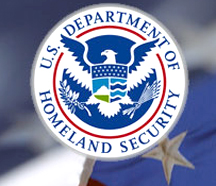Immigration News & Updates eNewsletter
eNewsletter
POSTING DATE: December 4, 2017
Learn More About:
Immigration News & Updates eNewsletter © 2011 - 2017
For questions about U.S. Residency, Green Cards and Immigration Visas, Visit our Website at: www.ImmigrateToday.com or call our office at: (954) 382-5378
Check Out This Cool Stuff For Immigrants....
Immigration
Questions & Answers
This Week's Immigration News
Question: My son is married to an American and recently got his Citizenship. He wants to sponsor his father and I, along with his two sisters, ages 14 & 16. What we want to ask you is whether our minor daughter will be included in our immigration process and if they can immigrate to America along with me and my husband and how long the process for us to immigrate will take?
Answer: This is a very common question and often very confusing to immigrating Parents of U.S. Citizens who have minor children. Parents of U.S. Citizens are called “Immediate Relatives” (as are Spouses and Minor children).U.S. Immigration regulations only allow U.S. Citizens to sponsor each of their Immediate Relatives separately and no dependant spouses or minor children are able to immigrate along with them. For instance a U.S. Citizen child cannot sponsor his Parents together as a couple, instead, each parent must be sponsored separately in a separate family petition. Therefore, your son can sponsor you and your husband (his dad) separately and you can immigrate to the U.S..However your two daughters will not be able to immigrate along with you at the same time.
The children can obtain U.S. Residency later in one of several ways:
1) Once you obtain your Green Card you can sponsor them. Minor children of U.S. Residents are in the F2A category, with a current visa line of approximately 1 ½ years or more. The strategy which often works best is to have one Parent obtain Residency first, then file for the children and the other Parent then immigrates about the same time as the children.
2) Your U.S. Citizen son can petition for his siblings (sisters) in the F4 Immigration category for siblings of U.S. Citizens, but it will be much faster if you as the parents do it, since the sibling visa line in that category is currently 12 to 14 years.
Helpful Immigration Tips You Can Use
Immigration How To:
How Do I Know How To Prepare For My Immigrant Visa Appointment
No DACA Deal Reached During Last Week’s Whitehouse Meeting
Quick Overview On Maintaining Residency
USCIS Releases FAQ’s On DACA Application Rejections
With the 2018 budget negotiations looming over the next few weeks, Democrats are preparing for a showdown with Republicans and Trump over DACA. Many Democrats believe that insisting on DACA being included in the year-end measure is the only way to ensure that Dreamers get permanent protection, now that Trump has cancelled the Deferred Action For Childhood Arrivals (DACA) program, set to permanently terminate in March 2018.
Democratic Leader Pelosi vowed publically at a news conference recently, “We will not leave here without the DREAM Act passing, with a DACA fix,” adding: “We're not kicking the can down to March.”.
As recently reported, many DACA renewal applications mailed well in advance of the October 5th deadline were not delivered by that date, due to U.S. Postal Service (USPS) delays. As a result, the USCIS rejected thousands of applications filed by Dreamers. Immigration attorneys and advocates notified the Department of Homeland Security (DHS) of the delivery issues, strongly objected to the rejections.
Following these widespread reports, on November 15, 2017 the Acting Secretary of DHS announced that she had directed the USCIS to accept DACA renewal requests from Dreamers who resubmit their DACA renewal request with documentary proof that the original application was mailed by a date which should have been received by the USCIS except for the USPS delivery delays.
The Family immigration process often takes many years and finally, once an Immigrant Visa becomes available, the National Visa Center and U.S. Consulate begin final processing, ending in the immigrant visa consular interview appointment. This can be very intimidating and stressful, but is the final necessary step to immigrating to the U.S. Here’s a few tips to keep in mind in order to help you be prepared, and hopefully more relaxed, for your immigrant appointment:
Even some Republicans want to see DACA protection in place now before the end of the year, including Florida Republican Representative Carlos Curbelo, telling reporters “I want to see it done by the end of the year,” “We don’t want this to spill into next year. No. 1, that means more drama here. It means a lot of worried young people and a lot of anxiety.” But conservative Republicans and Trump remain opposed to including an immigration provisions in the budget Bill, preferring to take the issue up before DACA expires in March 2018 when they have more negotiating power. The pressure is on, stay tuned…
In recent days, the DHS released further information about the issue and resubmission guidelines in its “Frequently Asked Questions: Rejected DACA Requests”. The FAQ’s advises Dreamers that the USCIS will identify applications which were rejected due to USPS delivery delays and others which were simply rejected in error and contact Applicants directly by mail with instructions for resubmission. Dreamers whose applications were rejected, who have not received notification are directed to email the USCIS “lockbox” (which is the mailroom in charge of accepting or rejecting incoming applications) with copies of USPS mail receipt showing the date of mailing and expected date of delivery or other evidence to prove that the application was rejected in error.
USCIS Advisory About Phone Scams and Tax Identity Theft
Now that Tax season is rolling around again in 2018, the USCIS Public Engagement Division reminds Immigrants to beware of tax phone scams. Immigrants are advised not to fall victim to scammers who call and say they are with the Internal Revenue Service (IRS)!
There has been an increase in aggressive phone scams where people call and threaten Immigrants with police arrest or deportation if they don’t pay a fine over the phone by credit, debit card or other means.
The USCIS and IRS wants Immigrants to know that a real IRS agent will:
NEVER call and demand immediate payment over the phone
NEVER try to threaten or intimidate, NEVER demand payment with a prepaid debit card, or ask for your credit card or debit card number over the phone and
NEVER threaten to call the police or immigration agents if you don’t pay.
If you get a call like this, report it to the Treasury Inspector General for Tax Administration by calling 800-366-4484.
Watch A Video About Scams:
Visit the IRS Tax Scam Website:
USCIS Scam Advisory:
After obtaining U.S. Permanent Residency (a Green Card), many immigrants have mistaken beliefs about how much time must be spent inside in the U.S. in order to continue to maintain legal Green Card status. Under Immigration Regulations, a U.S. Resident may re-enter the U.S. after travelling abroad for absences of less than one year. However, based upon this rule, there is a mistaken belief that a Green Card holder can maintain permanent residency by simply entering the U.S. once or twice per year and never having an absence of more than a year. Under the new Trump administration, this is far from the truth and the reason why so many U. S. Resident’s will lose their Green Cards in the years to come.
The "one year" rule really has two requirements. The Green Card can be used to re-enter the U.S. only if 1) the U.S. Resident ’s absence from the U.S. is less than a year AND 2) the U.S. Resident ’s is returning to his or her residence in the U.S. after a temporary absence abroad. This means that the U.S. Resident ’s must continue to maintain legal residence in the U.S. by having a physical residence to live in, bank accounts, utility bills, filing tax returns, employment, etc.
Absences from the U.S. of six months or more can be very problematic and must often be explained in detail upon re-entry. The mere return to the U.S. once or twice per year does not "revalidate" the Green Card and the USCIS can (and often does) determine that permanent residence status has been abandoned. Therefore, given the current government’s “hostile” attitude to many Immigrants and the time and effort most immigrants have invested to obtain a Green Card in the U.S., extreme care should be taken to maintain legal status in the U.S. and avoid prolonged absences from the U.S.. Good to know!
Read Your Appointment Letter carefully/Gather Civil Documents: make sure that you completely review the letter, schedule and attend your required medical examination and gather the ORIGINAL Civil documents listed on your notice. In most cases, you are required to bring your passport which must be valid for at least six months beyond your intended entry date to the U.S. and provide original or certified copies of your birth and marriage certificate, divorce decrees, police certificate, military certificate (if applicable), death certificate for spouses, criminal records for arrest and convictions (if applicable), even if the charge was dismissed, expunged or sealed. For marriage cases, you’ll need to provide additional evidence to prove the validity of the marriage, including as many photos of you and your spouse with family and friends as possible, birth certificates for children any joint utility bills and other marital evidence.
Medical Examination: Make sure that you schedule your medical examination way in advance of your consular appointment date, in order to give enough time for the results to be ready for your interview. The appointment notice will give you complete instructions on which doctors are authorized by the Consulate to perform the required exam. If possible, take a copy of your vaccination records to your exam for the doctor to review to avoid being given duplicate vaccines and avoid drinking alcohol for several weeks prior to your exam if possible. Substances such as marijuana should be avoided for many months prior to the exam. Blood test results which are positive for drugs can result in a permanent denial of an immigrant visa.
Appointment Application & Confirmation: At the time of your appointment, make sure you print out and have your appointment letter and appointment registration confirmation with you when you go to the U.S. Consulate. You might be wise to review your DS260 immigrant visa application you submitted online, just to refresh your memory about the information you provided for past addresses, employment, travel history and family relationships.
Security at the Consulate: Increasingly, U.S. Embassies maintain very strict security measures, which prohibit you from bringing certain items to with you to your appointment. Most Embassies now do not allow you to bring cell phones, tablets, computers and any other electronic devices, luggage, weapons and objects such as pen knives which can be used as a weapon.
If you have questions about the process or which documents you are required to provide for your specific case, make sure and consult a qualified immigration attorney before proceeding.












